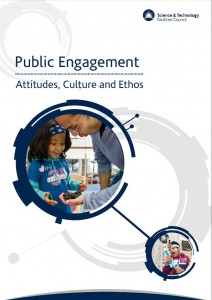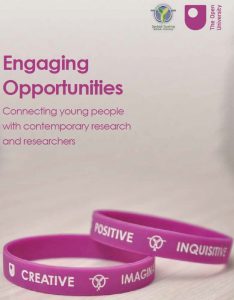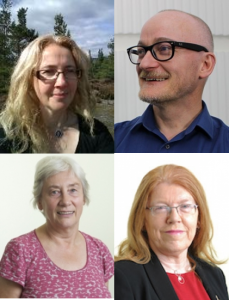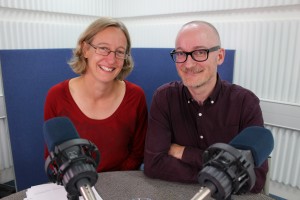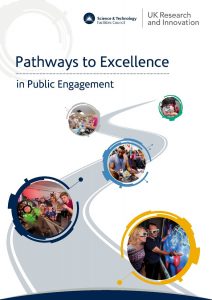
Pathways to Excellence in Public Engagement (STFC, 2018).
Recent STFC-sponsored research explored how physical science researchers in the UK are responding to the requirements to plan for, assess, monitor and report impact (Holliman et al. 2018).
The STFC-sponsored research found that the current system of Pathways to Impact Planning is struggling to consistently deliver rigorous, well-resourced programmes of impact-generating activity, including public engagement.
Upstream planning for pathways is a key requirement for improving the overall quality of the peer review system that underpins impact. How might this be achieved?
‘Navigating pathways to research impact’ is a short video offering entry-level advice on how to plan upstream for Pathways to Impact within the context of an application for research funding.
To access a copy of the transcript for the video, select: Navigating pathways to research impact’ is a short video offering entry-level advice on how to plan for Pathways to Impact (Transcript).


